Principal Investigator
Dr. Alex Strauss (he/him)
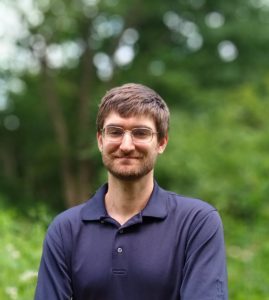
I am a quantitative disease and community ecologist. I am especially interested in disease ecology in the context of global changes such as biodiversity loss, climate change, and environmental eutrophication. I like to approach my research by combining three iterative and complementary perspectives: observations in nature inspire relevant questions, experiments test specific predictions, and mathematical models generalize and formalize theory. I mostly work in aquatic systems, focusing on parasites that infect zooplankton, but I also have a few projects in terrestrial grasslands.
email: atstrauss@uga.edu; twitter: @atstrauss
Lab Manager
Jakob Scholeno
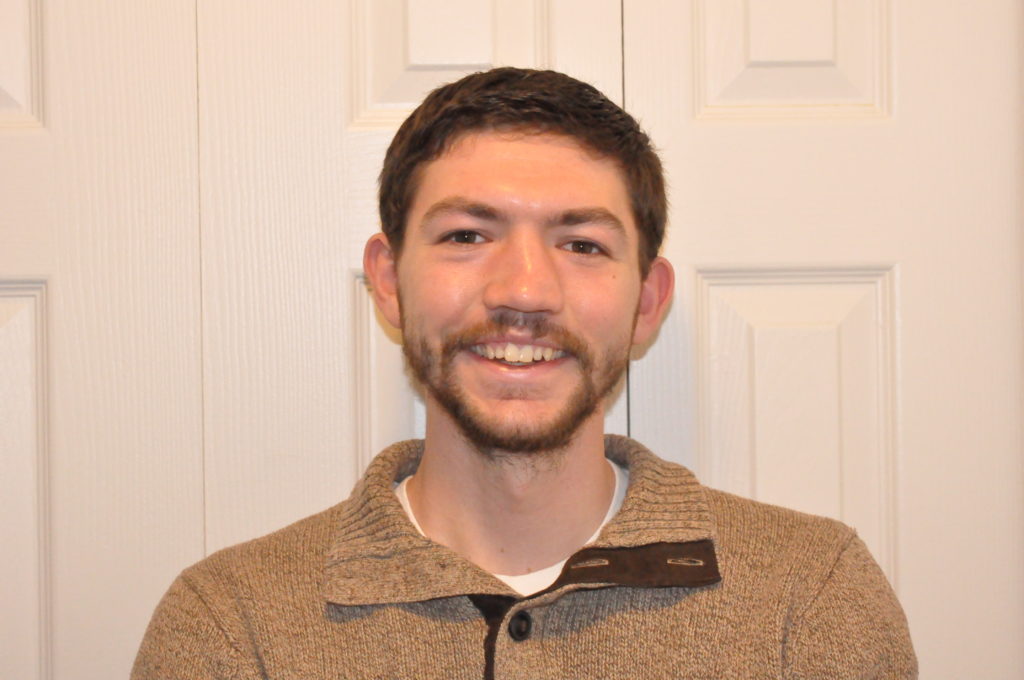
I am interested in understanding how aquatic invertebrates are affected by their environment. I am especially focused on plankton community dynamics and drivers of ecosystem change. I received my BS in marine biology from The University of New Haven in 2020, and am currently finishing my MS in Environmental Science & Ecology from SUNY Brockport. In my masters program I worked with Dr. Michael Chislock to understand how nutrient driven algal blooms and microplastics work interactively to impact aquatic communities with a focus on zooplankton community structure, and Daphnia and the amphipod Hyallella azteca‘s life history characteristics. I am excited to combine my past experience with current and future research in the Strauss Lab.
email: Jakob.Scholeno@uga.edu
Postdocs
Elizabeth Warburton
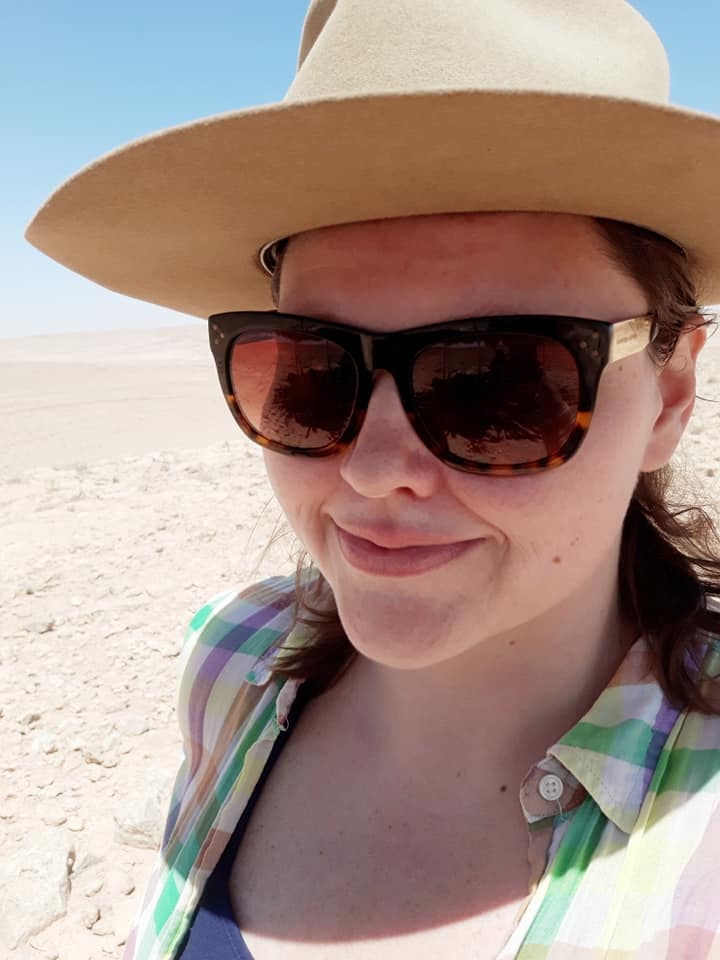
I am a parasite ecologist who works toward understanding host-parasite relationships over multiple spatiotemporal scales and am funded by a postdoctoral fellowship from Center for the Ecology of Infectious Diseases through the Provost’s initiative on data science, artificial intelligence, modeling, and infectious disease dynamics. This includes everything from global trends at higher host-parasite taxonomic groupings to within-host parasite dynamics in a single location, from ecological to evolutionary timescales, and from single host-parasite populations to host-parasite communities. In particular, I seek to understand the eco-evolutionary dynamics of complex lifecycle parasites by leveraging data science approaches to uncover patterns in large datasets. To this end, I am interested in understanding macroecological and phylogenetic patterns in the evolution of complex parasite lifecycles with multiple hosts. I work with the Strauss lab using Daphnia parasites, such as microsporidians and Alloglosidium sp. trematodes, to understand how intermediate hosts are added and dropped from parasite lifecycles. Thus, I use fieldwork, benchwork, and computational methods to address host-parasite relationships across multiple ecological and evolutionary scales.
email: ewarburton@uga.edu
Graduate Students
Katie Schroeder (she/her)
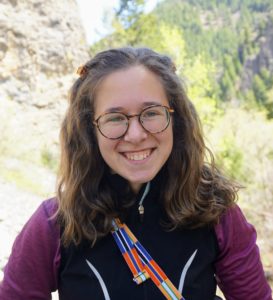
I’m interested in the interactions between disease spread and community and ecosystem ecology. I especially enjoy thinking about how environmental conditions affect disease transmission and ecosystem processes. My undergrad research spanned from microbial bioremediation of selenium to the effects of metal ions on nectar microbial communities to carbon cycling and fungal disease in grasslands. I’m excited to combine different parts of these previous research experiences and learn a whole bunch of new things!
email: k.schroeder@uga.edu
James Oni
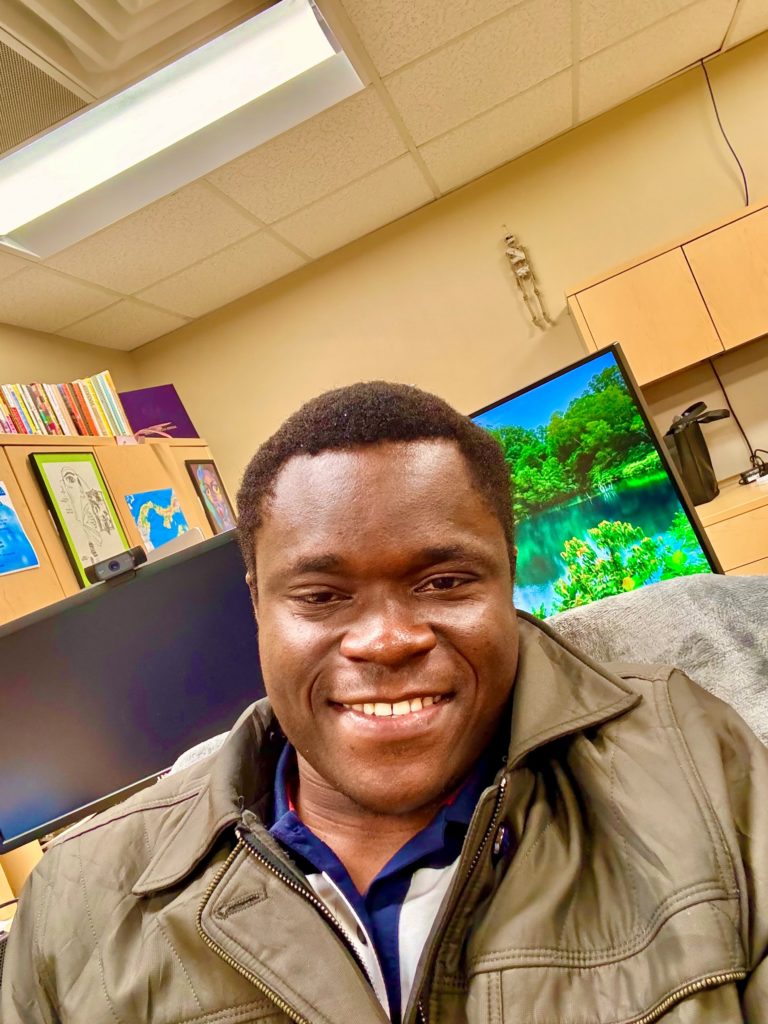
I am interested in predicting disease outcomes in complex prey/hosts, parasites, and predator communities and how these interactions shape immune responses, including the host’s decision to resist or tolerate infection. Most of my early studies use the fantastic Daphnia-Metschnikowia system and have focused largely on trait-mediated indirect effects of predators on immune responses and disease in Daphnia populations. Going forward, I will combine field observations, experiments, and mathematical models to test some intriguing ideas, including the healthy herd and terminal investment hypotheses.
email: James.Oni@uga.edu / Onijames4@gmail.com
Kelly Mayes
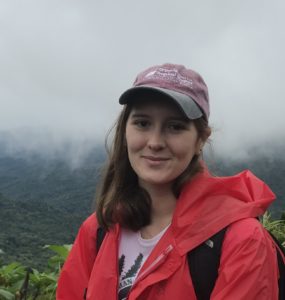
I am a second-year master’s student studying novel microsporidian parasites and their putative life cycle between zooplankton and Chironomid midges in local ponds in Athens, Georgia. My research interests include interactions between disease spread and community ecology, molecular ecology, and aquatic entomology.
email: kmm19529@uga.edu or kmayes1667@gmail.com
Undergraduate Students
Reina Scott
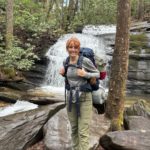
I am an undergraduate Ecology student at UGA interested in infectious disease in freshwater systems. The bulk of my work in the lab has been investigating how changing temperatures affect Daphnia growth rates as well as their host-parasite relationship with Metschnikowia bicuspidata. I am specifically fascinated by the interaction of community composition, predation, and disease transmission. I plan on studying this further by continuing my work with the Daphnia-Metsch system.
Emilie Dudgeon
Emilie joined the lab in 2024 and has worked on multiple CURO projects including 1) effects of temperature and temperature fluctuations on growth rate of algae, and 2) effects of temperature and temperature fluctuations on feeding rate of Daphnia.
Amelia Shugart
Amelia joined the lab in 2023 and helped sampled a competition experiment between Ceriodaphnia and Daphnia and also assisted with general maintenance of colonies of lab organisms.
Avery Akins
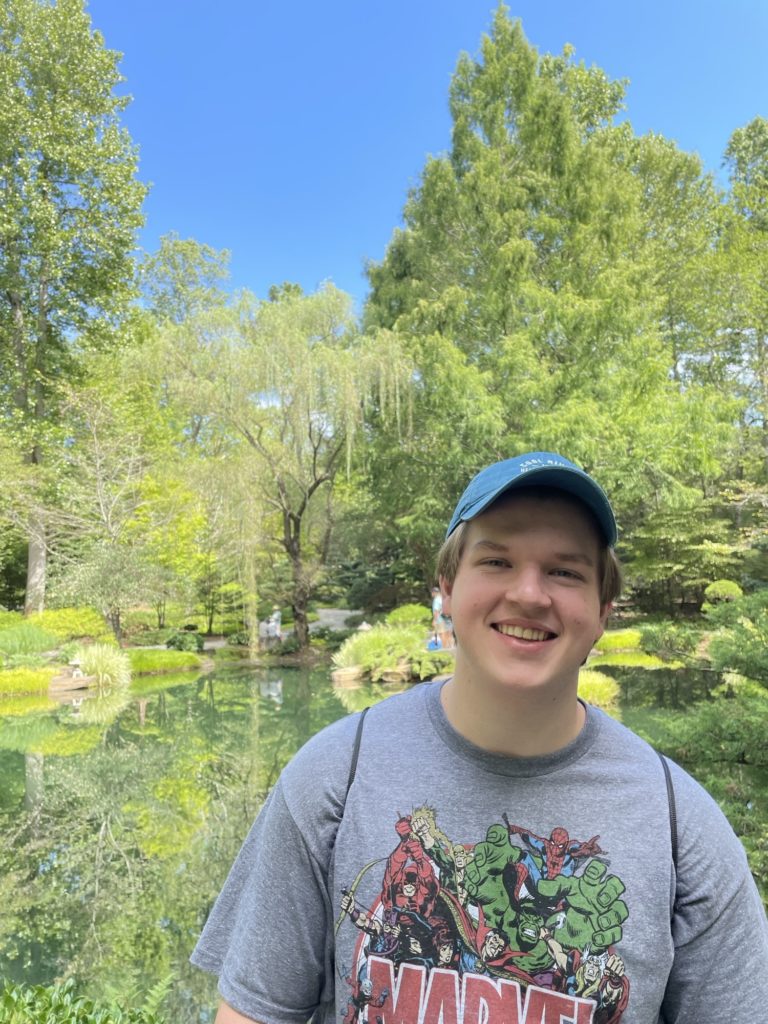
I currently attend the University of Georgia as an undergraduate student working for my Bachelors in Ecology, with special interest in disease ecology. I am currently working within Strauss Lab researching how the age of spores of Metschnikowia, a fungal parasite that infects Daphnia, affects its infectivity over a temperature gradient, with hopes of continuing any work when the time comes.
Ava McCain
Ava joined the lab in 2023 and is working on the microsporidian-midge system. For her CURO project, she is counting and sorted adult midges captured by emergence traps deployed at ponds during the spring 2024 outbreak season.
Lab Alumni
Former Postdocs
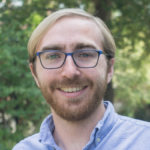
Robbie Richards, Teaching Postdoc 2022-2023. Robbie held a Teaching Postdoc position in the Odum school and conducted research in the Strauss lab on the effects of stage structure on healthy herds dynamics. He is currently teaching faculty at Georgia Tech.
Former Lab Managers

Christopher Brandon, Lab Manager 2022-2024. Christopher graduated from UGA 2022 and continued as lab manager of the Strauss lab for two years. He left the lab manager position to start a PhD in disease ecology at Colorado State University
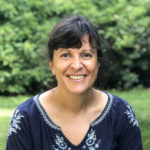
Kate Galbraith, Lab Manager 2021-2022. Kate was the inaugural lab manager of the Strauss lab! She helped set up the lab, lead exploratory surveys of local ponds, and helped oversee the first round of experiments in the lab.
Former Undergraduates

Isaac Wood, CURO student and lab technician 2022-2024. Isaac contributed to the spring 2022 field season and was particularly interested in collecting adult chironomids (putative definitive hosts for the microsporidians) that emerged from the ponds. He graduated in 2024.
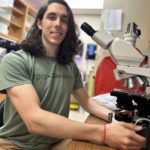
Gabe Sullivan-Brugger, CURO student and lab technician 2022-2023. Gabe worked on the microsporidian system. He counted spore yield from infected field-collected cladocerans and processed them for genomic analyses. He graduated in 2023.
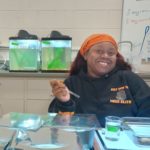
T’Kai Adekunle, REU student 2023 from Savannah State University. For her project, T’Kai determined the preference of mosquitofish predators for healthy vs. infected Daphnia, as well as juvenile vs. adult Daphnia. The fish selectively target large, infected Daphnia!
Chris Romiluyi, CURO student in 2023. For his project, Chris helped Katie and Daniel measure feeding rate of Daphnia under various combinations of temperature and food concentrations.
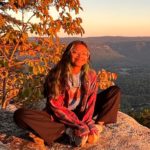
Iman Khan, Lab technician 2021-2022. Iman helped keep the lab running smoothly! She helped with maintaining cultures of zooplankton and phytoplankton and counting spores of microsporidian parasites. She transferred to Georgia Tech in 2023.
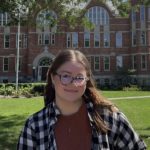
Emily Landolt, REU student 2022. For her REU project, Emily is asking whether eDNA can be used as a tool to estimate densities and relative abundances of zooplankton, in controlled mesocosm experiments.
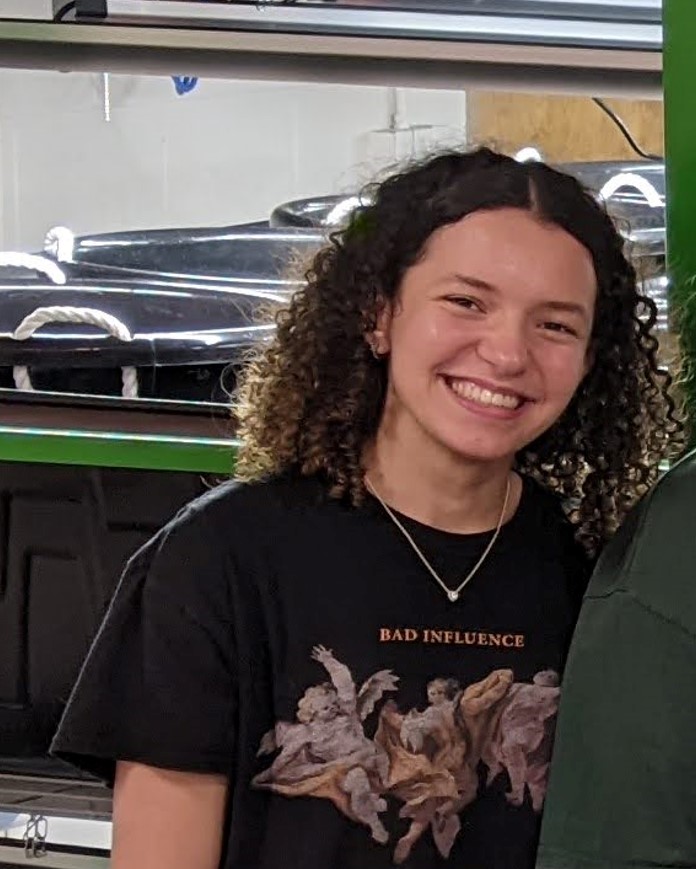
Jenavier Tejada, REU student 2022. For her REU project, Jenavier is asking how fluctuating temperatures affect competition between Daphnia and Ceriodaphnia, and whether disease dilution is more likely in an environment with variable temperature.
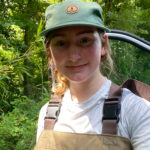
Mackenzie Jordan, CURO student 2022. For her CURO project, Mackenzie investigated affects of temperature on susceptibility of two species of zooplankton (Daphnia and Ceriodaphnia) to the fungal parasite Metschnikowia bicuspidata. Warmer temperature increased likelihood of infections in Daphnia, but the pattern was less clear for Ceriodaphnia.
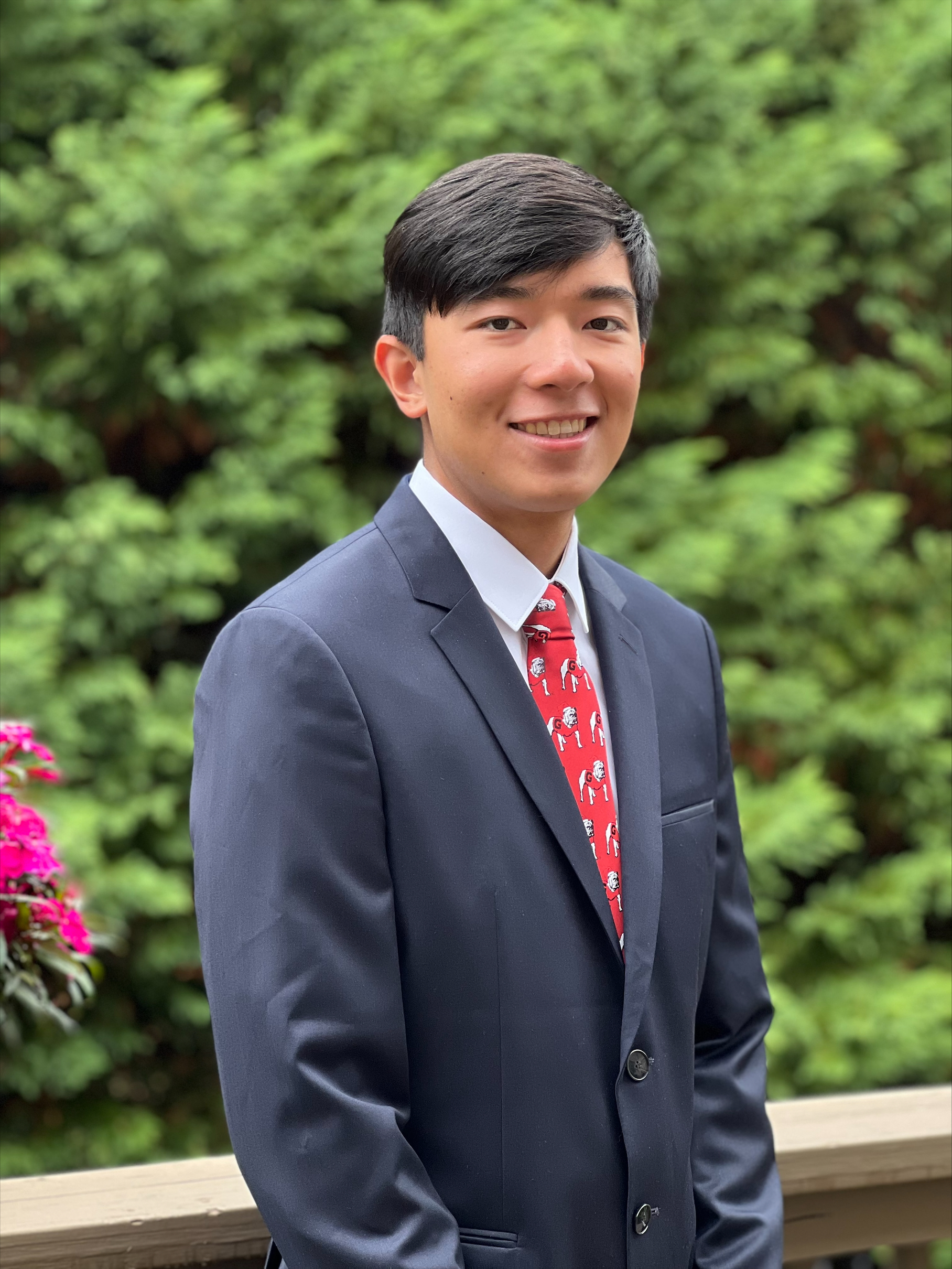
Drew Mancao, CURO student 2022. For his CURO project, Drew investigated how temperature affected competition between two species of zooplankton, Daphnia dentifera and Ceriodaphnia dubia. Preliminary evidence suggests that warmer temperatures may favor Ceriodaphnia, but that outcomes of competition may also vary among genotypes.
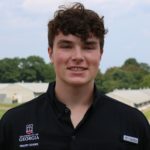
August Anderson, CURO Student 2021. For his CURO project, August determined infection prevalence of the endophyte epichloe in tall fescue at Horseshoe Bend (it’s very high!). He also scored fungal damage and measured length of host plant leaves growing in the field.
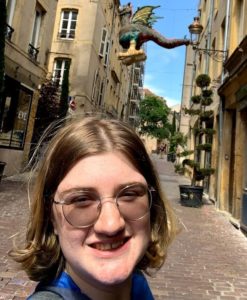
Hannah O’Grady, REU Student 2021. For her REU project, Hannah asked whether different species of zooplankton infected with microsporidians differed in their spore yield (they do!). Through Hannah’s efforts, we also learned that these parasites cannot be transmitted horizontally between zooplankton, and that they likely have an intermediate host.